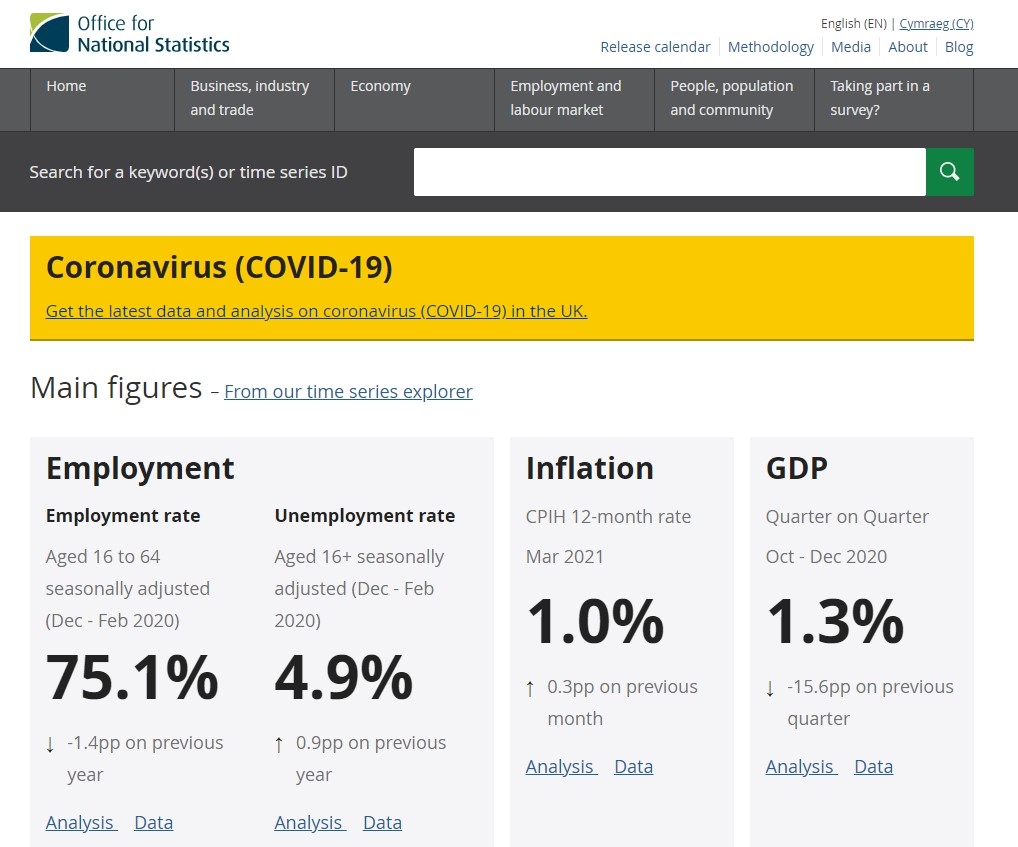Inflation rose to 5.5% in January, continuing its run of the country’s highest inflation rate in 30 years.
UK Consumer Price Index (CPI) was 5.4% in December.
It is at the highest level since records began in January 1997, according to the figures from the Office for National Statistics (ONS).
Inflation is now outpacing wage growth and is forecast to climb to above 7% this year.
Average basic pay (excluding bonuses) rose 3.7% per year in the three months to December.
The ONS said the largest contributors to January’s rising inflation were from clothing and footwear, household goods, food and drink, alcohol and tobacco. It also blamed the rise on a 19% increase in electricity bills and a 28% rise in gas bills in the year to January.
Core CPI for January stood at 4.4%, higher than the 4.2% seen in December.
Hinesh Patel, portfolio manager at Quilter Investors, said the latest rise in CPI makes a further increase in the Base Rate from the Bank of England look inevitable.
He said: “While we face inflationary pressures not seen for decades, worse is yet to come. The Bank of England expects CPI inflation to peak around 7.25% in April, though the Bank has so-far underestimated the extent of inflation in previous forecasts.
“In the absence of any extraordinary development’s, the MPC’s next meeting looks set to be a rubber stamping for a rate hike. The question now is whether they go for a 25 basis point hike or a 50 basis point hike. A 50 basis point hike may well be on the cards, but it would be a sharp correction for the Bank which may ultimately not allow them to hike more in future, especially once we see households and businesses under even more strain this year.”
Dan Boardman-Weston, CIO at BRI Wealth Management, hopes that the Bank of England will not raise rates too far as it could stifle economic recovery.
He said: “The data continues to point towards another few months of rises in the rate of the inflation but we expect this to ease by April or May.
“Given the strength of the labour market and the overall economy, it seems inevitable that the Bank of England will continue down the path of further rate rises. It is important that the Bank is cautious with raising interest rates as a lot of this inflation still seems transitory in nature.
“Raising rates at a time of high household bills and rising taxes could stifle the nascent economic recovery by putting the consumer under too much pressure.”
Laith Khalaf, head of investment analysis at AJ Bell, said savers may turn to investments in order to fend off inflation.
He said: “Whether inflation ultimately falls away, it’s here today and it’s here to stay for the foreseeable future. As for savers, the average Cash ISA is currently paying just 0.34% in interest, so many people will naturally find themselves turning to the stock market to help fend off inflation.
“That certainly makes a lot of sense, because companies at least have the opportunity to pass price rises onto consumers. In fact, that’s largely what causes inflation, as measured by the Consumer Price Index. However, investors need to play a long game when using the stock market to beat inflation.
“Over the course of the year, there is absolutely no guarantee that an investment in the stock market will beat inflation. But in the long run, investing in stocks is one of the key defences savers have against rising prices.”

